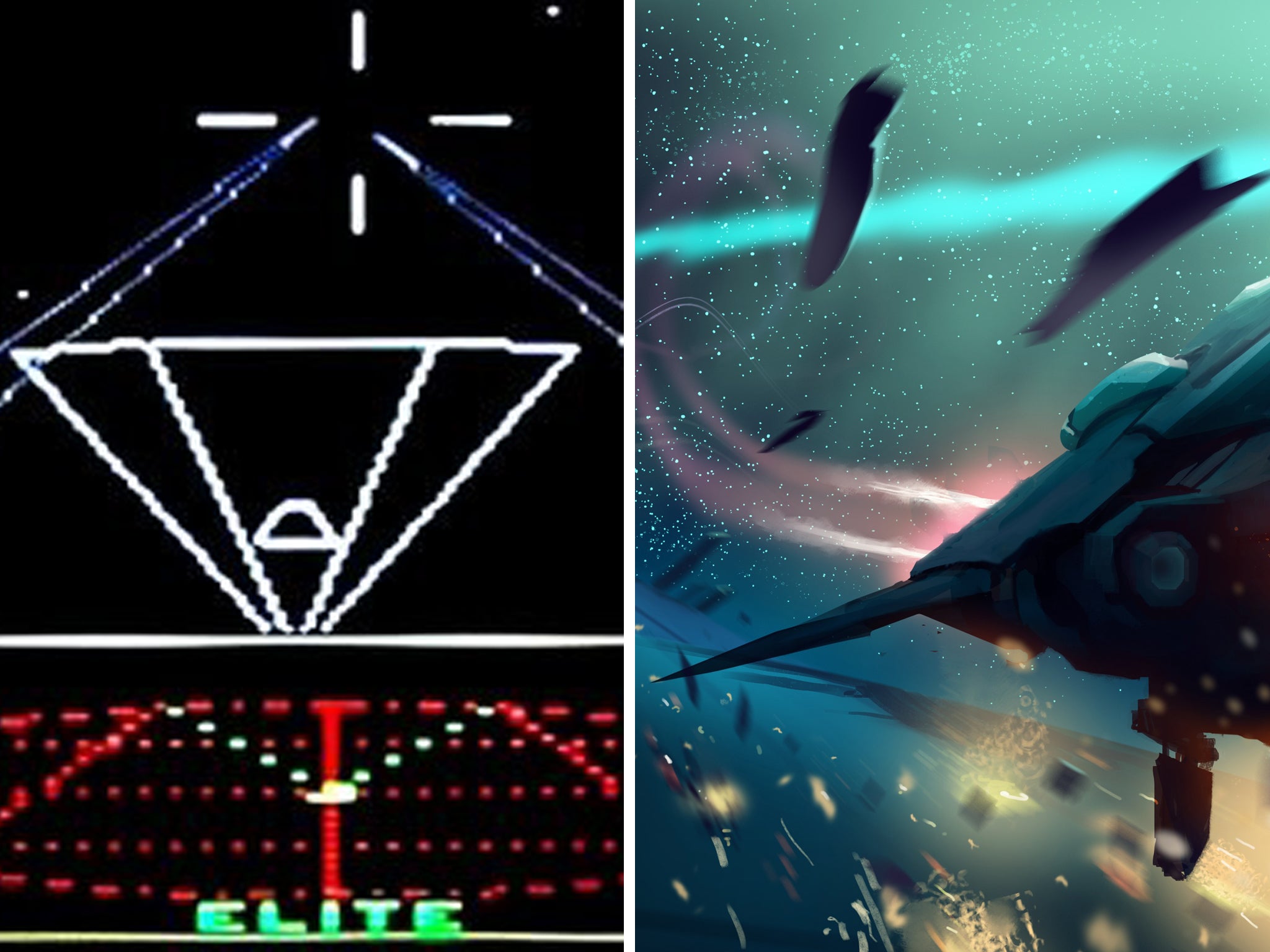30 years on, game fans put up cash for sequel to Elite
Computer game flies again after Kickstarter crowdsourcing hit

Your support helps us to tell the story
From reproductive rights to climate change to Big Tech, The Independent is on the ground when the story is developing. Whether it's investigating the financials of Elon Musk's pro-Trump PAC or producing our latest documentary, 'The A Word', which shines a light on the American women fighting for reproductive rights, we know how important it is to parse out the facts from the messaging.
At such a critical moment in US history, we need reporters on the ground. Your donation allows us to keep sending journalists to speak to both sides of the story.
The Independent is trusted by Americans across the entire political spectrum. And unlike many other quality news outlets, we choose not to lock Americans out of our reporting and analysis with paywalls. We believe quality journalism should be available to everyone, paid for by those who can afford it.
Your support makes all the difference.It was the cult space trading game, invented by a pair of Cambridge students, which hooked a generation of BBC Micro users. Now Elite will embark upon a new mission after its creators persuaded fans to pledge £1.5 million to help create a 21st century sequel.
Devised by David Braben, a natural sciences student at Jesus College and his undergraduate colleague Ian Bell, Elite immersed players in an open-ended, 3D game of intergalactic exploration.
Released on a cassette tape for the schools-friendly BBC Micro computer in 1984, Elite, which took up less computer memory than the average modern email, went on to sell 600,000 copies.
Last night (Friday), Braben confirmed that a long-awaited sequel would be produced, after a campaign on the “crowd-funding” website Kickstarter smashed through its £1.25 million pledge target.
Elite: Dangerous will be released in 2014 for PC, Braben said, promising a game in which players will be able to fight and trade their way across several galaxies, incorporating visual advances and multi-player modes which were unthinkable when the original was devised.
Braben, who will develop the game at his Frontier Developments company based in Cambridge, invited nostalgic 80s game-players to pledge their support in the appeal hosted by Kickstarter, the fund-raising site which launched in the UK last November.
By the time the appeal closed last night, Elite: Dangerous has found more than 24,000 backers delivering pledges rising from £1 to £5,000, which will earn the donor a private dinner with Braben and his development team.
“People got behind it very quickly,” said Braben. “The top price pledges sold out in the first hours and there was a rush near the end. We started feeling a bit nervous in the middle though.”
Rather than take his game to a large publisher, the crowdfunding route allowed Braben to assess the demand for a revived Elite from fans before committing to production.
“There is a nostalgia factor. A lot of people showed their love 30 years on for the game, which had a real influence on their childhood,” he said.
The original Elite was rejected by Thorn EMI, Braben recalls, because the company couldn’t understand a game that offered a cerebral alternative to Space Invaders.
Braben still prefers the independent approach. “Publishers steer to what’s already out there,” the developer said. “How much money has been lavished on the Call of Duty games but it’s hard to tell them apart. There is a fantastic democracy of publication now.”
Braben is even allowing his Kickstarter pledgers to get rich off his game. “We sold a lot of ‘writer’s pack’ pledges for £5,000. People can write a fan fiction set in the Elite world and keep all the royalties. Publishers have really gone for that.”
The rewards can be impressive – the Fifty Shades of Grey phenomenon began as a Twilight “fan-fiction” written by E. L. James. Gollancz has pledged more than £13,000 for the rights to publish three Elite tie-in novels whose storylines will be integrated into the new game.
Fans who pledged between £20 and £50 will receive in-game credits and access to exclusive levels when Elite: Dangerous is released. With the pledge target far exceeded, setting a record for a UK Kickstarter campaign in the process, Braben can push ahead with additional plans to release a version for the Apple Mac.
Braben’s Frontier Developments currently employs 235 developers in the UK and Canada. A new tax relief for UK games publishers, promised by the Government, would help keep the most talented developers in this country, Braben said.
“We turned to crowdsourcing because we get no funding from the banks these days. It frustrates me that the banks are very inactive in our sector. But the government is bringing in tax breaks which will help.”
Join our commenting forum
Join thought-provoking conversations, follow other Independent readers and see their replies
Comments